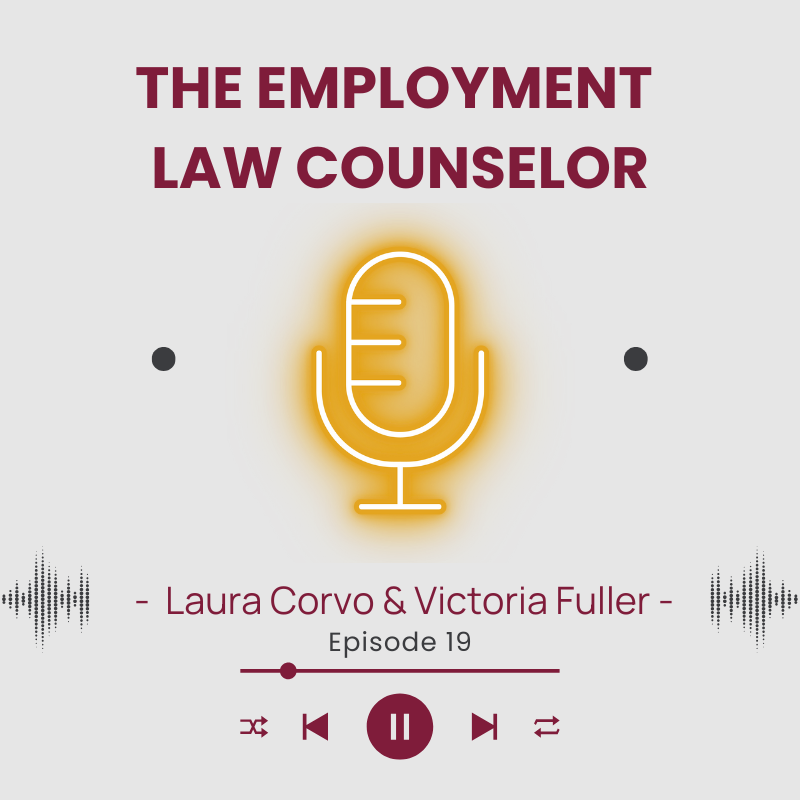June 22, 2023
Consider the Charge Before Responding to an EEOC Investigation

Employment attorneys who represent businesses should be mindful of the limitations of the Equal Employment Opportunity Commissions (EEOC) investigatory powers. In May 2023, the Eleventh Judicial Circuit ruled against the EEOC, which was seeking nationwide data from a car components manufacturer (the employer). See Equal Employment Opportunity Commission v. Eberspaecher North American Inc., No. 21-13799 (11th Cir. May 10, 2023).
A prior employee at the Northport, Alabama, facility of the employer complained to the EEOC that he was fired for taking protected absences under the Family Medical Leave Act. The EEOC charged the employer with discrimination under the Americans with Disabilities Act Amendments Act (ADAAA), listing only the Northport facility in the written charge.
Attorneys who represent businesses should be aware that businesses have the right to object to the scope of any request for information from the EEOC if the request appears to be overbroad. Additionally, as a practitioner, when you receive an EEOC Charge, take note of the specific allegations, the location, and the overall scope of the complaint. The employer objected to the scope here. The EEOC then issued a subpoena and eventually sought judicial enforcement in federal district court.
Here, the EEOC Charge stated: I charge the following employer with unlawful employment practices. Eberspaecher North America, Inc. 6801 B 5th Street Northport, AL 35476. [T]he above-named employer … has violated … and continues to violate the [ADAAA] by discriminating against employees on the basis of disability with respect to qualified leave. Then, the EEOC’s Mobile, Alabama, office sent the employers Northport facility a notice of the charge. The notice informed the employer that [t]he circumstances of the alleged discrimination are based on Retaliation and Disability, and involve issues of Discipline, Reasonable Accommodation, and Discharge that are alleged to have occurred on or about Jan 01, 2017 through Aug 02, 2019.
Shortly after submitting notice of the charge to the employers Northport facility, the EEOC submitted information related to the allegations of the charge. In response, the employer submitted a position statement and produced its companywide attendance policy. The EEOC followed up and, for the first time, requested information regarding every employee terminated for attendance-related infractions at each of the employers seven facilities throughout the United States. The employer refused and responded that the underlying charge was specific only to the Northport facility.
The district court agreed with the employer and found that in order to bring a nationwide charge, the Commissioner must state her intent within the four corners of the charge. The district court ordered the employer to turn over information related to the Northport facility but refused to enforce the EEOCs subpoena as to information from other facilities. The Eleventh Circuit Court of Appeals reviewed the district courts decision to enforce an EEOC subpoena for an abuse of discretion.
The Eleventh Circuit acknowledged that, while there is no statutory provision or regulation which requires any specific language to make an EEOC Charge have nationwide reach, the EEOC is fully aware as to how to issue broad charges targeting numerous employment locations when it suspects nationwide employment misconduct and seeks to collect relevant evidence from several facilities.
If a charge is valid and the requested material is relevant, a district court should enforce an EEOC subpoena unless the employer establishes that the subpoena is: 1) too indefinite; 2) has been issued for an illegitimate purpose; or 3) unduly burdensome. Whether the material requested is relevant is a threshold inquiry. The Eleventh Circuit Court of Appeals pointed out that, unlike other federal agencies which have plenary authority to demand records relevant to their jurisdiction, the EEOCs investigative authority is tied to, and limited by, the scope of the EEOCs charge against the employer. Whether material is relevant is directly tied to the language of the charge.
The Eleventh Circuit Court of Appeals ruled that, because the EEOC issued a charge against a single facility based on the complaint of a single employee, about a specific variety of attendance-related discrimination, the EEOC request for every facility nationwide on all attendance-related terminations was too broad and not relevant when compared to the charge against the employers Northport facility. As such, the court found that the district court did not abuse its discretion by enforcing the EEOCs subpoena of information only as to the Northport facility.
The dissent of the decision states that the U.S. Supreme Court has offered longstanding latitude to EEOC investigations that should have been left undisturbed. The dissent points to the fact that the employer is one corporate structure and citing to a specific address should not have limited the EEOC. Thus, the dissent would have found the nationwide subpoena relevant even though the majority did not.
In sum, this decision reminds corporate counsel to thoroughly examine the charge prior to responding to any requests for information or subpoenas from the EEOC. In the Eleventh Circuit, it is not automatic that the EEOC should receive all the information it requests from a business charged with an employment infraction.
Meet the Author


Marshall Dennehey
Holly M. Hamilton is an associate in the Professional Liability Department in the Fort Lauderdale office of Marshall Dennehey where she focuses on Florida community association and employment disputes. Holly has also handled a variety of consumer financial services litigation and compliance matters. She has additionally been involved in a range of other civil litigation matters including breach of contract issues, commercial disputes and real estate actions. She may be reached at hxhamilton@mdwcg.com.
News Type
PLUS Blog
Business Line
Directors and Officers (D&O), Employment Practices Liability (EPL)
Topic
Professional Liability (PL) Insurance
Contribute to
PLUS Blog
Contribute your thoughts to the PLUS Membership consisting of 45,000+ Professional Liability Practitioners.
Related Podcasts

The Employment Law Counselor Episode 19
Reductions in Risk for Reductions in Force In this episode of The…
Related Articles

Navigating EPL Trends Across North America: Key Risks and Insights for 2025 Webinar Recap
Employment Practices Liability (EPL) risks are becoming increasingly complex as workplace norms…

Mitigating the Risks of Reductions in Force: Lessons from The Employment Law Counselor
In the latest episode of The Employment Law Counselor, hosts Victoria Fuller…

Employment Discrimination and Retaliation – Best Practices to Avoid Headaches
There is little doubt that an employment-discrimination lawsuit is an unsettling experience…
